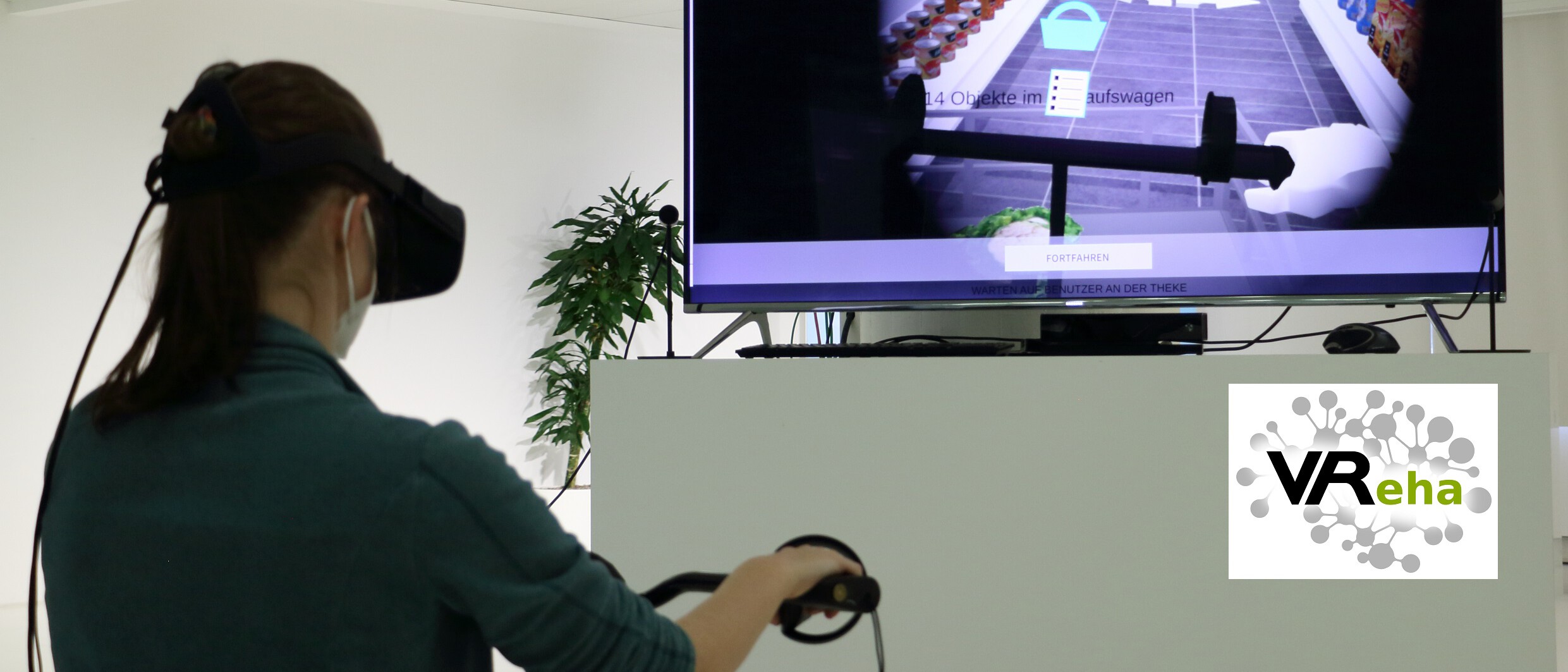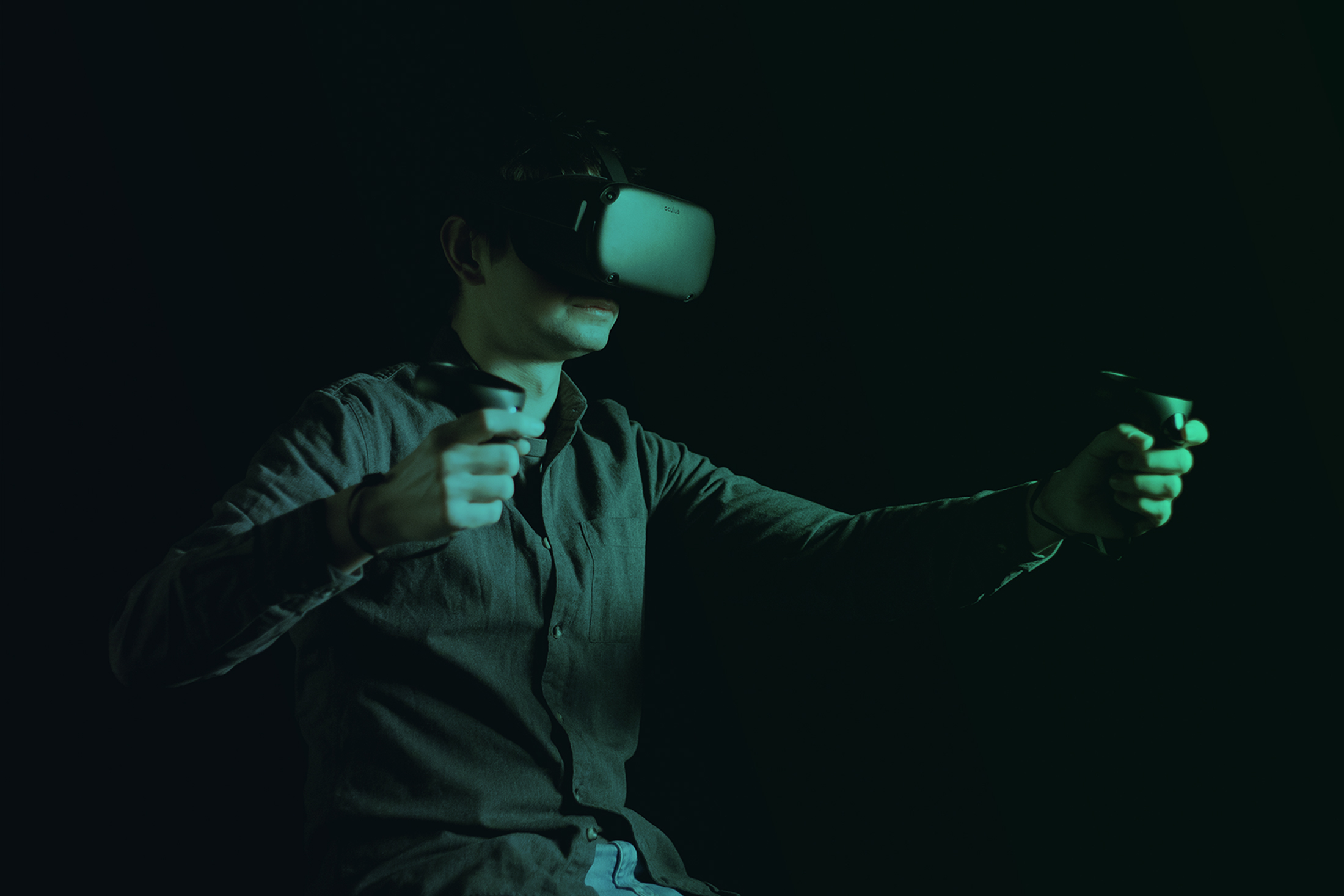Virtual worlds for digital diagnostics and cognitive rehabilitation
In VReha, we develop immersive VR applications to support the diagnosis and rehabilitation of cognitive impairment. The ”immersive Virtual Memory Task” (see photo 1) can be used to test and train spatial memory performance. For this task, we are currently establishing the feasibility in different groups of neurological patients (e.g., stroke, Alzheimer’s disease and encephalitis). In the “immersive Virtual Supermarket Task” (see photo 2), users can test and train executive functions.

The close interaction between experienced scientists, clinicians, and developers with quick iterative development-test cycles – also in relevant (i.e., clinical) environments – enables solid and clinically relevant progress.
Our user interaction is based on gesture recognition—rendering the use of handheld controllers unnecessary—to enable a more naturalistic interaction. With gesture-based interaction, the system can be used by patients with typical neurological handicaps, such as visual field deficits, hemiparesis or aphasia The continuously measured behavioral parameters (such as processing speed, pauses, movement directions) allow conclusions about underlying cognitive processes. These measurements are observer-independent and therefore less prone to errors.
VReha comprises scientific (Max Planck Institute for Human Cognitive and Brain Sciences), technical (Fraunhofer Heinrich-Hertz Institut, HASOMED GmbH), and clinical partners (Charité – Universitätsmedizin Berlin; University of Leipzig) in Germany’s Northeast (Leipzig, Magdeburg, Berlin). The project is funded by the German Federal Ministry of Education and Research.
